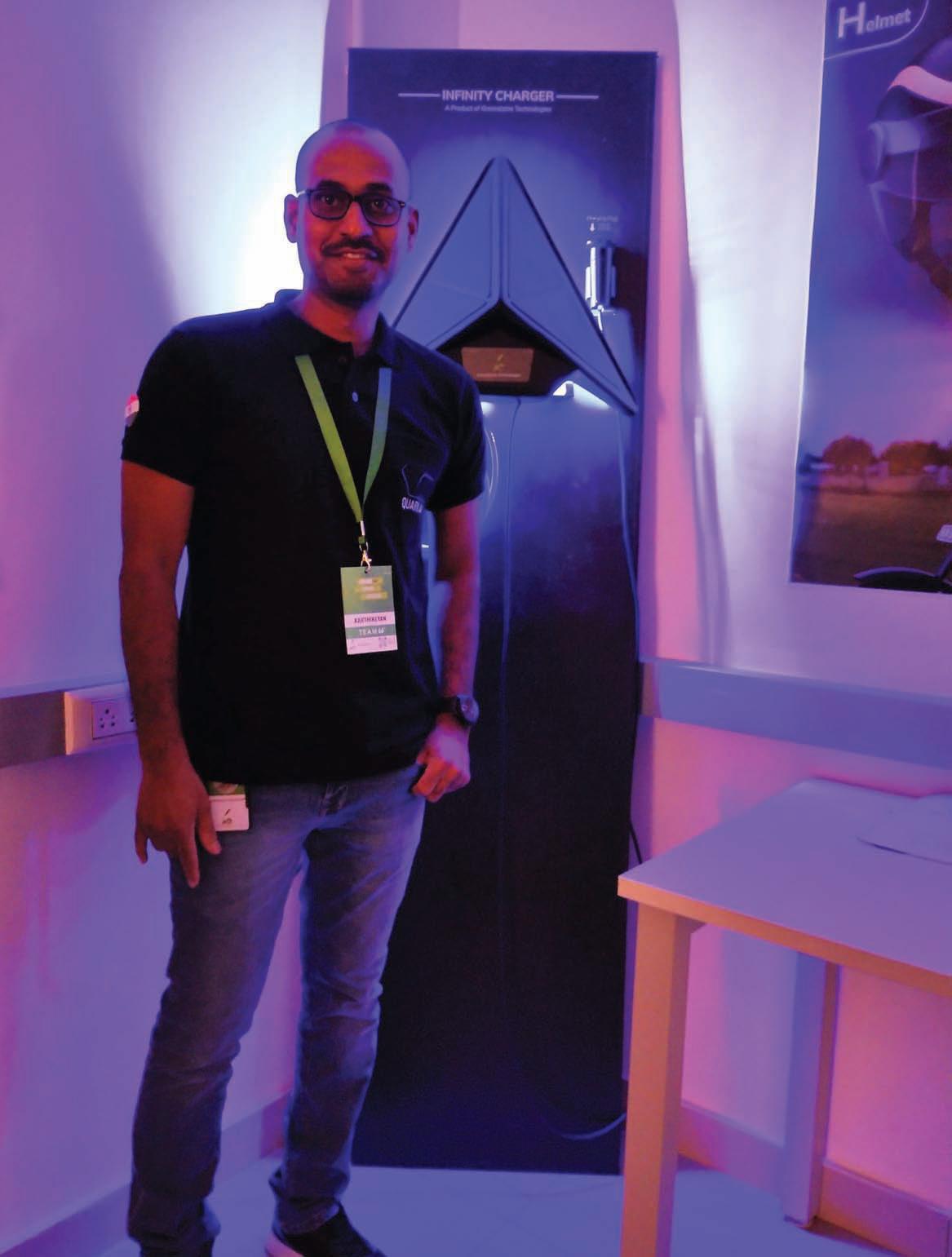
You claim that your chargers are like LEGO modules. What’s your unique recipe?
We have 30+ intellectual properties in design but this is The One. The innovation that we have got here is in power electronics. You cannot connect two power generating converters in series, because you would get into load balancing issues. We also faced that problem but we were able to solve it through multiple iterations, and we used a special switching mechanism called GaN FET. We were able to switch GaN FET switches at a frequency of 1MHz, increasing the power density of the charger, which is a great achievement in power electronics systems. With this switching frequency, as well as the hardware we developed, plus the homework we did, we were able to connect the modules in series and parallel to enhance both current and voltage.
Why do you use GaN FET? What’s special about it?
We are using GaN FET because we wanted to make sure that we are switching at a frequency of 1MHz or more. If you use MOSFETs and other FETs available in the market, you can’t switch at that frequency. If you try to do that, it starts burning. Secondly, when we switch at a higher frequency, the overall size of the power electronics grid will come down. So, we wanted to make a compact and highly efficient power electronics converter and that’s why we used GaN FETs.
Was this innovation intentional or accidental?
Bu hikaye Electronics For You dergisinin May 2023 sayısından alınmıştır.
Start your 7-day Magzter GOLD free trial to access thousands of curated premium stories, and 9,000+ magazines and newspapers.
Already a subscriber ? Giriş Yap
Bu hikaye Electronics For You dergisinin May 2023 sayısından alınmıştır.
Start your 7-day Magzter GOLD free trial to access thousands of curated premium stories, and 9,000+ magazines and newspapers.
Already a subscriber? Giriş Yap

TRULY INNOVATIVE ELECTRONICS -INNOVATION UPDATES
Amongst numerous press releases of new products received by us, these are the ones we found worthy of the title Truly Innovative Electronics

Elastomer enhancing smart wearable performance
A high-tech, flexible wearable device made from the innovative elastomer material

Nanotechnology based noninvasive cancer diagnostics
Nanoflake sensors built from indium oxide with platinum and nickel detect changes in isoprene

Space communication with silent amplifiers
In the new communication system from researchers at Chalmers University of Technology, in Sweden, a weak optical signal (red) from the spacecraft's transmitter can be amplified noisefree when it encounters two so-called pump waves (blue and green) of different frequencies in a receiver on Earth.

Advancements in TOPCon solar cells
The structure and performance of tandem devices with highly passivated TOPCon bottom cells

Quantum leap in magnetism refines superconductors
Rice University physicists have uncovered key magnetic and electronic properties in kagome magnets, structures resembling basket-weaving patterns.

Sensor targets food antioxidants
A research team from Hunan City University and Xiangtan University in China has developed a sensor for detecting TBHQ, a food antioxidant used in oils and fats, addressing health concerns at high concentrations.

Data sensing with repurposed RFID tags
UC San Diego researchers have advanced passive data collection with a breakthrough in battery-free sensing.

Seal-inspired sensors to safeguard offshore wind farms
Schematic structure of the seal whisker-inspired flow sensors

Artificial nose identifies scents accurately
Artificial nose identifies scents accurately